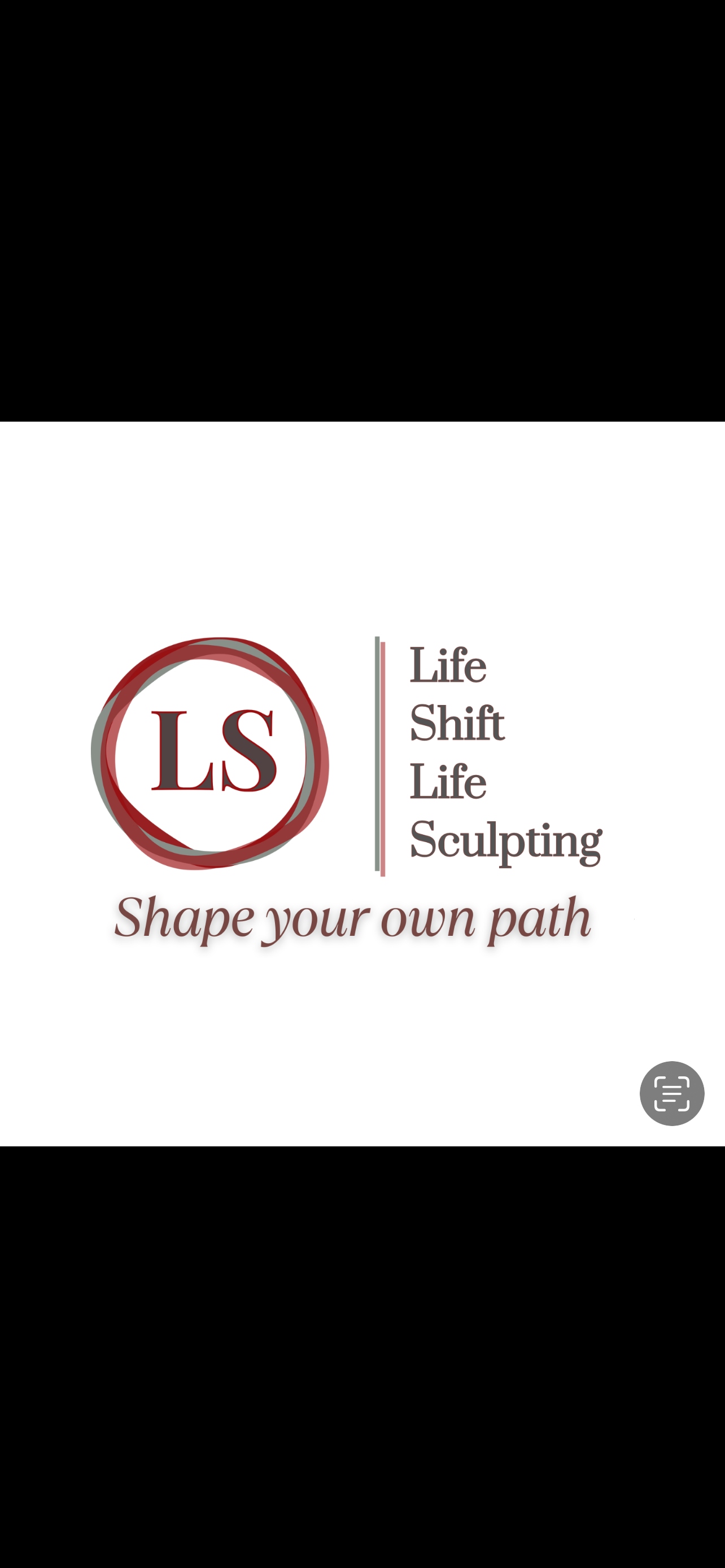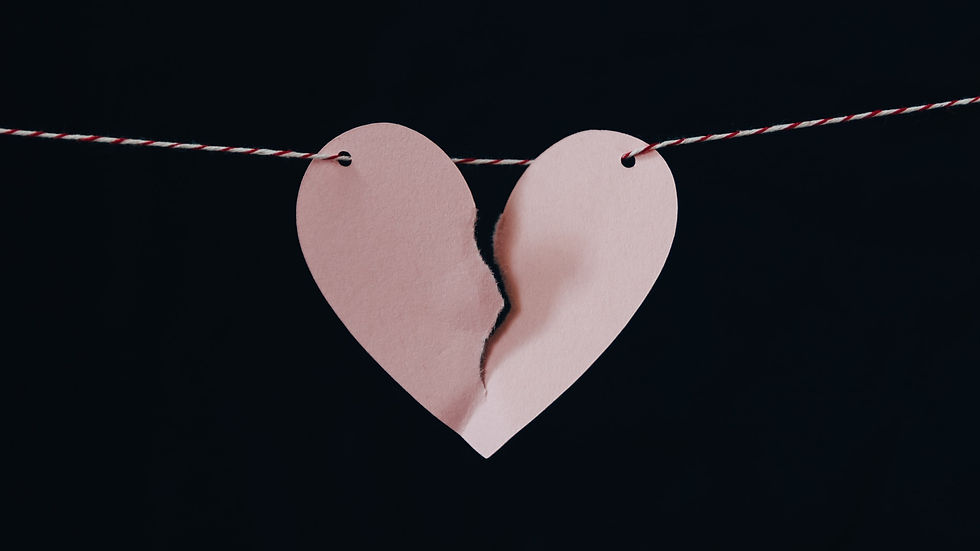- Life Shift Life Sculpting

- Oct 8, 2025
- 5 min read
Updated: Dec 1, 2025
Divorce Isn’t Always Loud: Understanding the Quiet Grief of Separation
Divorce isn’t always loud. Sometimes, it’s a quiet kind of breaking — one that doesn’t announce itself with chaos, but instead settles in your chest like a heavy ache that refuses to move. It’s the kind of loss that makes you realize grief doesn’t only belong to the cemetery. Sometimes, you grieve a person who’s still alive. Sometimes, you grieve the version of you that existed when love felt safe.

The Death That Doesn’t Take a Body
When people talk about divorce, they often speak in terms of paperwork — signatures, settlements, custody agreements. But those legalities only skim the surface. What they don’t prepare you for is the mourning that comes next: the death of your shared language, the silencing of inside jokes, the absence of a familiar touch that once said, I’m here.
It’s the slow, steady unraveling of a dream. You don’t just lose your spouse — you lose the imagined future, the plans that no longer make sense. You lose the comfort of “we,” and find yourself face to face with “I.” That kind of loss hits differently. It’s death while breathing — an ending that forces you to keep moving through days that feel unfamiliar, in a body that remembers love like muscle memory.
The Many Faces of Grief
Grief after divorce is complicated. It doesn’t follow neat stages or timelines. It comes in waves — sometimes soft, sometimes shattering. There is anger, at them for leaving or for staying too long. At yourself for not seeing the signs sooner. There’s guilt, for what you could’ve done differently, for the words you can’t take back. There’s even relief, that quiet whisper that admits maybe you’re better off now — and then the guilt that follows for feeling that way.
It’s messy. It’s human. It’s real.
What people don’t often tell you is that you can grieve someone and still not want them back. You can mourn the love and still know it had to end. That’s the paradox of healing — holding sorrow and freedom in the same hand.
This is a profound realization that many individuals come to understand only after experiencing the complexities of love and loss. Grief is often viewed as a straightforward response to losing someone significant, but it encompasses a multitude of emotions that can be both conflicting and enlightening. You can mourn the love, the shared memories, and the dreams that were once intertwined with that person, while simultaneously acknowledging that the relationship had to come to an end for your own well-being or personal growth. This duality is essential to comprehend; it highlights the intricate nature of human emotions and relationships.
It is entirely possible to feel a deep sense of loss, to reflect on the moments that brought joy and connection, and yet recognize that those same experiences may have been overshadowed by pain, toxicity, or incompatibility. Healing doesn’t mean erasing the past or dismissing the love that once existed; rather, it involves embracing all aspects of that relationship, including its conclusion.
In this journey of healing, you may find yourself navigating through a landscape of memories, where laughter and tears coexist. You might reminisce about the good times, allowing yourself to feel the weight of what was lost, while at the same time celebrating the newfound freedom that comes with moving on. This process can be both cathartic and liberating, as it enables you to honor the love that was while also making space for new opportunities and experiences in your life.
Ultimately, the ability to grieve while also letting go is a testament to your resilience and emotional maturity. It signifies a deep understanding of what it means to love, and it empowers you to step forward into a future that is not defined by past relationships, but rather enriched by the lessons learned and the strength gained through the experience. This balance of sorrow and liberation is a vital part of the human experience, reminding us that love, in all its forms, is complex and multifaceted.
Rebuilding the Self You Forgot
After the dust settles, there’s a silence — the kind that’s equal parts terrifying and holy. In that silence, you start to hear your own voice again. Not the one that molded itself around someone else’s needs, but the one that speaks your truth, even if it trembles.
Rebuilding means learning to exist beyond the titles you once carried: wife, partner, caregiver. It means rediscovering what brings you joy when no one’s watching. It’s walking into a room alone and realizing your presence still fills it.
You start small. Making coffee the way you like it. Sleeping diagonally across the bed. Laughing — really laughing — without checking if someone else finds it funny. And little by little, you begin to remember that you are still whole. Divorce didn’t erase you; it revealed the beauty that still remains when everything else falls away.
Loving Yourself Through the Loss
Loving yourself after divorce is an act of resurrection. It’s deciding that your story doesn’t end in heartbreak — it transforms there. You begin to understand that healing isn’t about rushing into new love or proving you’ve “moved on.” It’s about sitting with your pain until it teaches you something about your resilience.
You learn that you can be both broken and beautiful. You can still believe in love — not because it didn’t hurt you, but because you survived it.
A Quiet Rebirth
One day, you’ll wake up and realize you’ve gone an entire morning without crying. You’ll notice how sunlight hits your kitchen table just right. You’ll laugh with a friend and it won’t feel forced. You’ll breathe — deeply, freely — and it won’t hurt.
That’s the quiet miracle of healing after divorce. You may have felt like you died, but you’re still here. And somewhere between the heartbreak and the rebuilding, you find your way back to yourself — not the person you were before love, but someone wiser, softer, and more whole than you ever imagined.
Because sometimes, death while breathing is just another way of saying rebirth.
Embracing the Journey Ahead
As you continue on this path, remember that healing is not linear. There will be days when the weight of your loss feels heavier. And there will be days when you feel lighter, as if a burden has been lifted. Embrace each moment, for they are all part of your journey.
Finding Support
Consider seeking support from friends, family, or professionals. Sharing your feelings can lighten the load. Connecting with others who have experienced similar losses can provide comfort and understanding. You are not alone in this journey.
Looking Forward
As you heal, begin to envision your future. What do you want it to look like? What dreams have you put on hold? Start taking small steps towards those aspirations. Whether it’s picking up a new hobby, traveling, or pursuing a career change, allow yourself to dream again.
Conclusion: The Path to Wholeness
In conclusion, divorce is a profound experience that can lead to deep grief and transformation. It’s a journey that requires patience, self-love, and resilience. Embrace the process, honor your feelings, and allow yourself to grow. Remember, you are not defined by your past, but by how you rise from it.
The path to wholeness is paved with both sorrow and joy, and it is yours to walk.



Comments